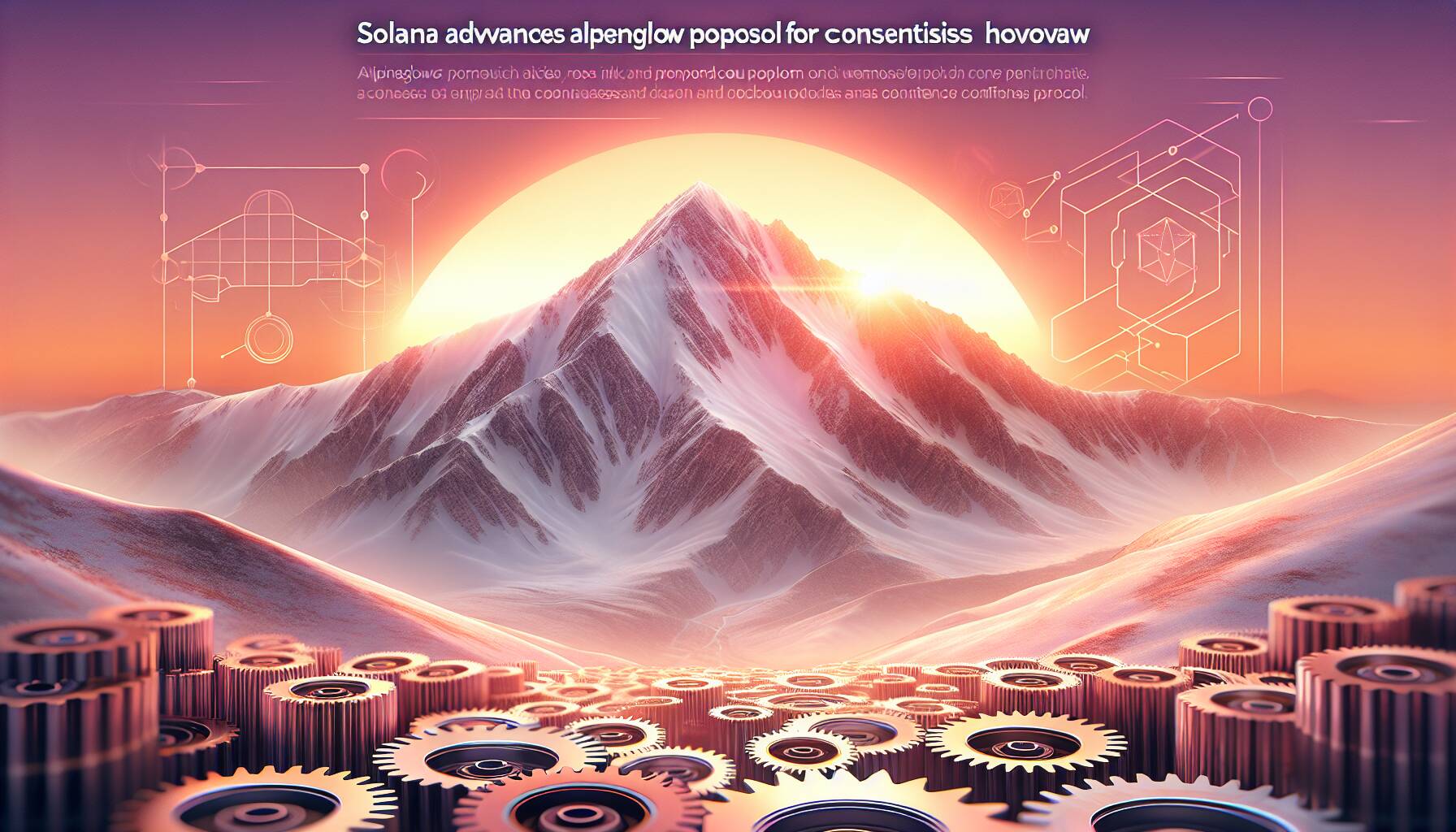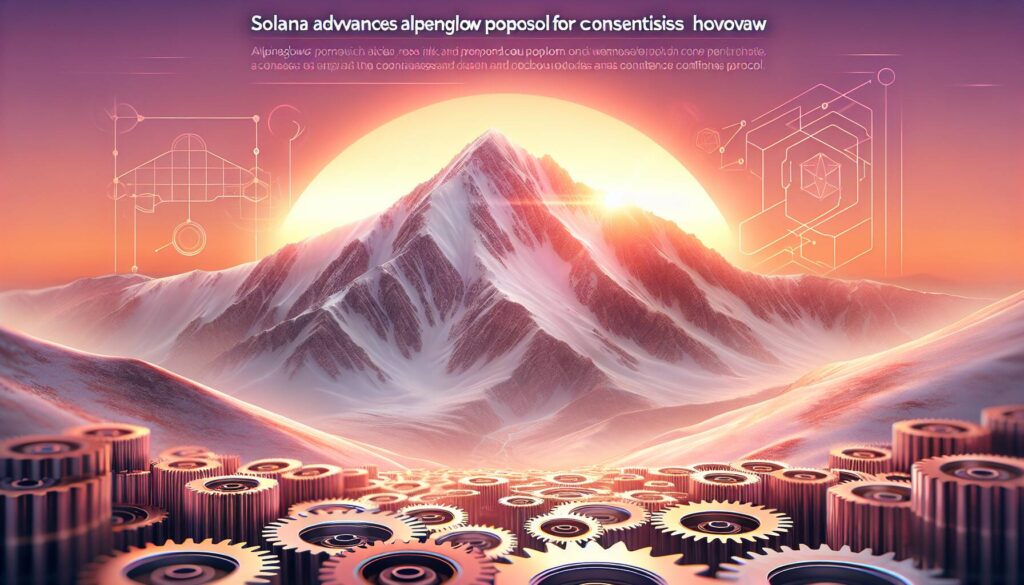In a significant move for the future of blockchain technology, Solana developers are advancing their Alpenglow proposal, a plan designed to overhaul the network’s consensus mechanism. Currently in the validator voting stage, this proposal seeks to replace the existing Proof-of-History and TowerBFT methods with a more efficient design featuring two key components: Votor and Rotor.
As of Thursday morning in Europe, tracking data indicates that just over 10% of validators have shown support for this transformative upgrade, with a large portion—over 88% of eligible participants—yet to make their voting decisions. If approved, Alpenglow could revolutionize transaction speeds by reducing the finalization time from over 12 seconds to an impressive 150 milliseconds, promising users near-instant confirmations.
In addition to accelerating transactions, the Rotor component aims to improve network efficiency by minimizing the amount of data transferred between validators. This enhancement is particularly beneficial for high-traffic applications like decentralized finance (DeFi) and gaming, which require seamless performance. Furthermore, the Alpenglow proposal introduces a robust “20+20” resilience model, ensuring continued operations even if a significant portion of validators is unavailable or acting against the network’s interests.
This proposed consensus overhaul highlights Solana’s ongoing commitment to achieving faster transaction speeds while reinforcing security and fairness for its validator community, making it a pivotal moment in the evolution of blockchain technology.

Solana’s Alpenglow Proposal: A Major Consensus Overhaul
Key points regarding the Alpenglow proposal and its potential impact:
- Validator Voting Stage: The Alpenglow proposal is currently in the validator voting phase, with only 10% of validators supporting it, indicating a critical point for community consensus.
- Replacement of Current Mechanisms: It intends to replace Proof-of-History and TowerBFT, introducing new components—Votor and Rotor—which may lead to a more efficient network.
- Transaction Finalization Speed: The new Votor mechanism aims to reduce transaction finalization time from over 12 seconds to approximately 150 milliseconds, significantly enhancing user experience.
- Efficiency for High-Activity Applications: Rotor, planned for future implementation, is designed to support demanding applications like DeFi and gaming by optimizing data transfer among validators.
- Resilience Model: The proposed “20+20” resilience model aims to ensure network reliability, allowing it to function even with 20% of validators acting adversarially and another 20% being offline.
- Impact on Security and Fairness: The overhaul focuses on enhancing security while ensuring a fairer voting process for validators, potentially improving trust and participation in the ecosystem.
The changes proposed in Alpenglow could lead to faster transaction times and greater reliability, which are crucial for maintaining Solana’s competitive edge in the blockchain space, ultimately benefiting users and developers alike.
Solana’s Alpenglow Proposal: A Step Toward a Scalable Future
Solana’s recent shift towards the Alpenglow proposal represents a pivotal moment in the blockchain space. By proposing a substantial overhaul of its consensus mechanism, Solana aims to enhance transaction speeds and network resilience. Unlike traditional validation processes, which often suffer from latency, the introduction of Votor promises to reduce finalization times drastically from over 12 seconds to a mere 150 milliseconds. This could position Solana favorably against competitors like Ethereum and Cardano, which are also working on scaling solutions but have convergently relied on their legacy systems like Proof of Work and Proof of Stake.
Competitive Advantages: The new “20+20” resilience model incorporated in Alpenglow could offer unmatched security parameters, ensuring that the network remains functional even with significant validator downtime. This contrasts sharply with other platforms that may struggle under similar conditions, potentially limiting their usability in fast-paced sectors like DeFi and gaming. Additionally, the move toward reducing data transmission needs could foster the kind of high-performance applications that the Solana ecosystem is eager to attract.
Disadvantages: However, the proposal does come with inherent risks. With only about 10% of validators backing the upgrade at present, there remains a significant gap in consensus. The success of Alpenglow heavily relies on the community’s willingness to embrace this change, and without robust support, the proposal may falter. Furthermore, the transition could pose challenges for existing validators who may need to adapt quickly to the new systems, which can create friction within the community.
This proposal holds potential benefits primarily for developers and users in the DeFi and gaming arenas, where speed and efficiency are crucial. However, it may also create complications for those who are staunch supporters of the current consensus methods, possibly leading to a rift within the validator community. As Solana navigates these waters, the outcome of the Alpenglow vote will be instrumental in determining its future trajectory in the blockchain landscape.

















